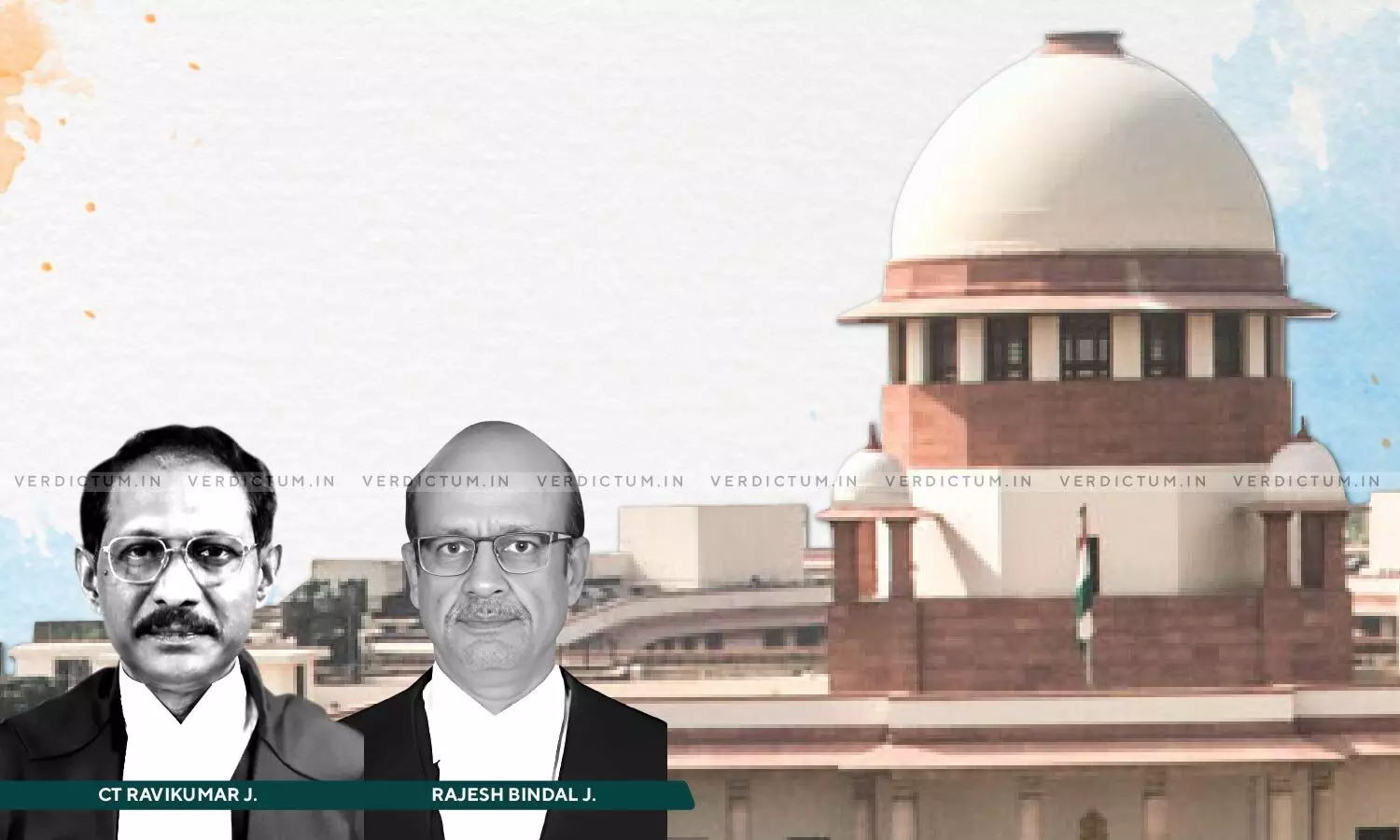
Property Owner Collecting Rent Cannot Be Absolved From Rendering Accounts; Liable To Make Good The Loss Suffered By Co-Sharers: SC
 |
|The Supreme Court explained that a purchaser of a property is liable to make good the loss suffered by co-sharers and cannot be absolved from rendering accounts after having collected rent from the same property.
The appellant prayed for partition of the suit property by metes and bounds and in case not possible, sale by open auction and distribution of the sale proceeds amongst the co-sharers. The appellant also sought the accounts of rent collected by the co-sharers from tenants and a direction to the tenants to deposit the rent in the court.
A Bench of Justice C.T. Ravikumar and Justice Rajesh Bindal observed, “Since it is the admitted case of the defendant No.3(a) himself that he had rented out a portion of the property and collected rent therefrom, there was no good reason for the High Court to have absolved him from rendition of accounts. However, this is with a rider as the plea sought to be raised by the defendant No.3(a) regarding rent notes produced by him were prima facie found to be sham transactions, as the market rate of the rent of the portion in control of the defendant No.3(a) was much more at that time.”
Advocate Samar Pratap Singh appeared for the appellant, while Sr. Advocates Dama Seshadri Naidu and Sanjeev Anand represented the respondents.
The Trial Court's preliminary decree granted a 25% share to the appellant and ordered an auction of the property due to the legal bar under the Chandigarh (Sale of Sites and Buildings) Rules, 1960. The Court also directed the co-sharers, who had let out portions of the property, to render accounts of the rent collected.
After the preliminary decree was challenged, the First Appellate Court allowed the appeal filed by the defendant holding that they, being in possession of the share of the suit property to the extent of their ownership, were not liable to render accounts to other co-sharers.
The High Court held that the defendant could not be asked to render accounts explaining that he got the possession of the property after purchase from the earlier co-sharer, who got the same vacated after a protracted litigation. “Even if he was owner of the 1% share, he was not in wrongful possession,” the High Court held.
The appellant submitted that with the impugned judgment passed by the High Court, an anomalous situation was created.
The Supreme Court noted that the effect of the judgment of the High Court was that the co-sharers in the property to the extent of 16% were not liable to render accounts.
“As noticed earlier, the issue raised by the plaintiff seeking partition of the joint property before this Court is only with reference to rendition of accounts by the defendant No.3(a) and defendant Nos. 15 to 19. The opinion expressed by the High Court in the impugned judgment, that both of them are not liable to render any accounts, deserves to be set aside,” the Court remarked.
Consequently, the Bench held that the High Court “misdirected” itself in recording the finding that the defendant, being in self-occupation of the part of the property and being a co-sharer, would not be liable to render any accounts.
“After the sale of the property if any of the co-sharers fail to contribute any amount to the common kitty for distribution amongst all the co-sharers as determined by the Trial Court, the distribution of the amount so collected after the sale of the property shall be reduced to that extent from the share of that co-sharer,” the Court clarified.
Accordingly, the Supreme Court allowed the appeal.
Cause Title: Rajinder Kaur (D) v. Gurbhajan Kaur (D) & Ors. (Neutral Citation: 2024 INSC 552)
Appearance:
Appellant: Advocates Samar Pratap Singh and Karanvir Singh Khehar; AOR Ashok K. Mahajan
Respondents: Sr. Advocates Dama Seshadri Naidu and Sanjeev Anand; Advocates Rajiv Kataria, Debjani Das Purkayastha, Shurya Bhalla, Sonam Anand, Deepshikha Sansanwal, Sl Soujanya, Nikhil Sharma, Sahil Patel, Rhythm Katyal, Chinmay Dubey, Shivani Chawla, Archna Yadav, Pratyush Arora and Yuvraj Chhabra; AOR Santosh Krishnan, Ankit Goel and Siddharth Batra